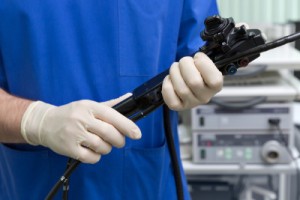
On January 22nd, LA Times did a story on a family that went through every family’s worst nightmare: losing a loved one due to a complication that arose during a routine medical procedure; and not just any complication, but a medical device that caused a slow, painful death.
One hospital’s failure to subsequently file a mandatory federal report—a failure that then shed light on all of the other hospitals that too had not filed these reports—eventually also led to a Senate investigation of all the infection spread by this deadly device known as a duodenoscope, as released earlier this month.
The Deadly Device
As described by the FDA close to a year ago, duodenoscopes are essentially flexible tubes that are placed in patients’ mouths and lead into the top of the small intestine, known as the duodenum. They are typically used in a procedure known as a endoscopic retrograde cholangiopancreatography to drain fluids from pancreatic and biliary ducts that can get blocked by tumors.
But how did this one device hurt so many people? The scope was advertised as a reusable method of detecting digestive-related cancers and other issues, but turned out to be close to impossible to disinfect. And the leading manufacturer—Olympus Corp–didn’t recall the products until close to six years after it started selling them.
The Law
Hospitals are required by law to report serious injuries and deaths due to medical devices to the FDA within 10 days. However, the Senate investigation revealed that few hospital employees were even aware of these requirements. Many claimed that they did not quickly file the reports because they had to first ensure that the scope was the source of the infections. And even those where doctors had painstakingly contacted health officials about the deadly device did not make a difference, as these efforts went largely uncoordinated and hidden from public view.
Due to all of the various reporting failures, the Food and Drug Administration (FDA) was never alerted to the dangers associated with the device and failed to warn hospitals about the device until three years after the initial 2012 outbreak, and after close to 200 patients had been infected. The “code of secrecy” kept many hospitals quiet and likely led to more and more patients becoming sick, sometimes dying.
Conflicts of Interests
While many hospitals cited reasons why they weren’t quick to report problems with the deadly device to health officials, some have remarked that these facilities also had close relationships with one of the three manufacturers, who also supply them with other medical equipment.
Harrell & Nowak
Medical malpractice doesn’t just cover an obvious mistake made by a surgeon during surgery; it can be the result of many doctors or facilities failing to comply with the law and report injuries and deaths, ultimately leading to more of them due to that failure.
Our New Orleans medical malpractice attorneys are dedicated to ensuring that victims receive the compensation they deserve. If you have been the victim of medical malpractice, contact us today for a free consultation.
